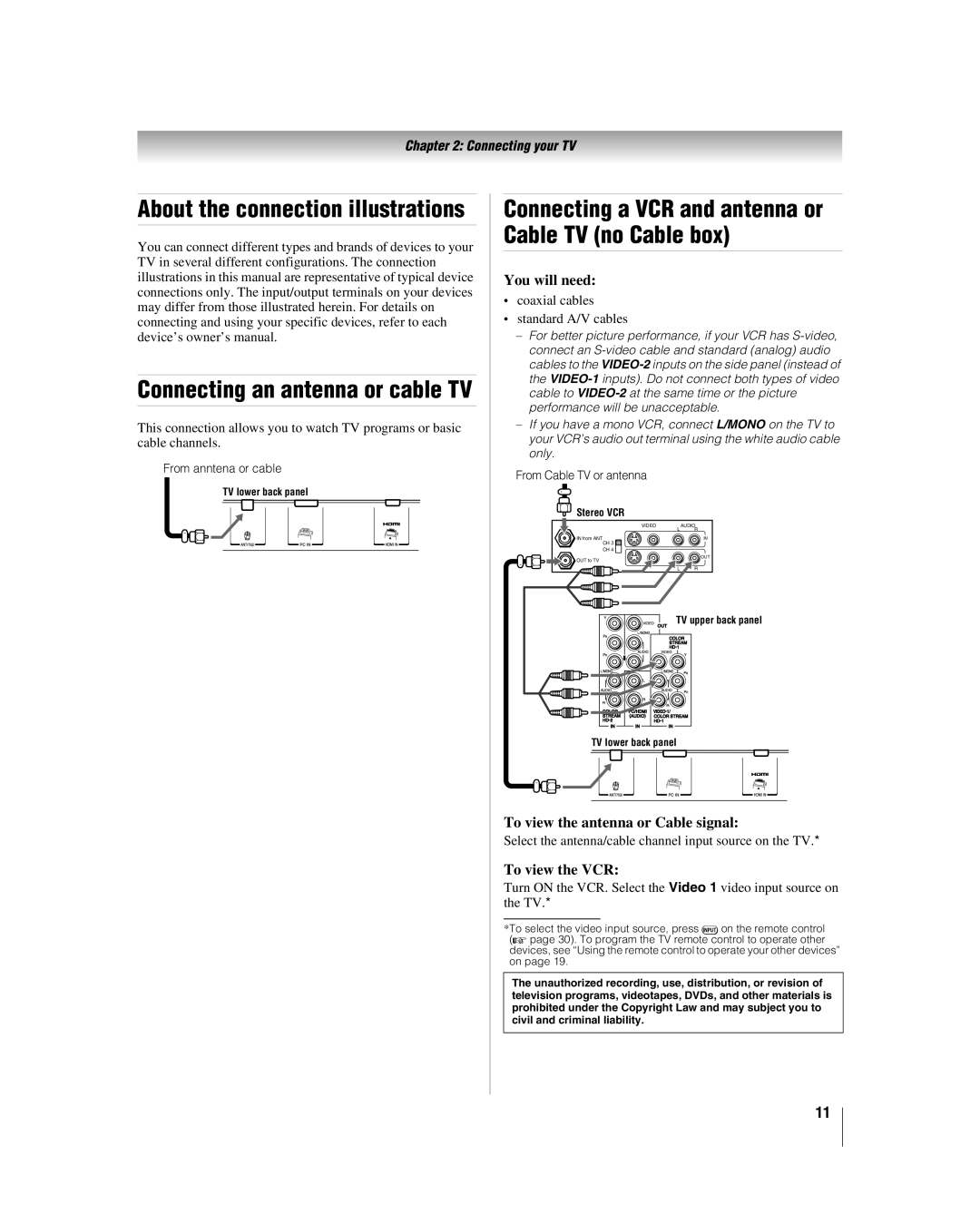
Chapter 2: Connecting your TV
About the connection illustrations
You can connect different types and brands of devices to your TV in several different configurations. The connection illustrations in this manual are representative of typical device connections only. The input/output terminals on your devices may differ from those illustrated herein. For details on connecting and using your specific devices, refer to each device’s owner’s manual.
Connecting an antenna or cable TV
This connection allows you to watch TV programs or basic cable channels.
From anntena or cable
TV lower back panel
Connecting a VCR and antenna or Cable TV (no Cable box)
You will need:
•coaxial cables
•standard A/V cables
–For better picture performance, if your VCR has
–If you have a mono VCR, connect L/MONO on the TV to your VCR’s audio out terminal using the white audio cable only.
From Cable TV or antenna
![]() Stereo VCR
Stereo VCR
VIDEO | AUDIO |
L | R |
IN from ANT | IN |
CH 3 |
|
CH 4 |
|
OUT to TV | OUT |
| |
L | R |
TV upper back panel
TV lower back panel
To view the antenna or Cable signal:
Select the antenna/cable channel input source on the TV.*
To view the VCR:
Turn ON the VCR. Select the Video 1 video input source on the TV.*
*To select the video input source, press +on the remote control (- page 30). To program the TV remote control to operate other devices, see “Using the remote control to operate your other devices” on page 19.
The unauthorized recording, use, distribution, or revision of television programs, videotapes, DVDs, and other materials is prohibited under the Copyright Law and may subject you to civil and criminal liability.
11
